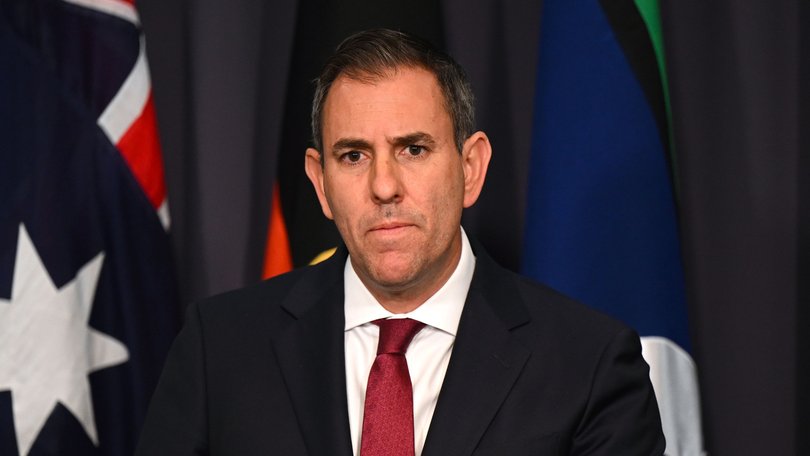Australia’s top 500 companies could be hit with tax hike under Productivity Commission proposal
Jim Chalmers will consider a plan to increase the tax burden on the nation’s 500 largest businesses while cutting it for smaller businesses as a key proposal at his three-day economic reform roundtable.

Jim Chalmers will consider a plan to increase the tax burden on the nation’s 500 largest businesses while cutting it for smaller businesses as a key proposal at his three-day economic reform roundtable.
In the first of its five major examinations of how to get Australia’s productivity out of the doldrums, the Productivity Commission proposes cutting the corporate tax rate to 20 per cent for businesses with revenue below $1 billion and introducing a new 5 per cent cashflow tax that allows companies to deduct their investment costs in full.
Interest on loans would no longer be deductible under the proposal.
Sign up to The Nightly's newsletters.
Get the first look at the digital newspaper, curated daily stories and breaking headlines delivered to your inbox.
By continuing you agree to our Terms and Privacy Policy.Currently, businesses with turnover below $50 million have their profits taxed at 25 per cent, and those with higher turnover pay 30 per cent.
The 30 per cent rate would remain for businesses with revenue above $1 billion, who would also be hit with the 5 per cent cashflow tax.
Modelling in the report released on Thursday night suggested this would cut the tax bill for more than 1.2 million companies but increase it for approximately 500 companies topping $1 billion in revenue.
Productivity Commission deputy chair Alex Robson said the changes would start to shift the company tax system towards one that better supported investment and productivity growth, and which could be further tilted in that direction over time.
Turning around the productivity slump of the past decade requires getting businesses to expand and invest in new tools and technology.
“If we don’t get our economy moving again, today’s children could be the first generation to not be better off than their parents,” Dr Robson said.
“We need to spark growth through investment and competition – the best way to do that is to reform our company tax system.”
Research for the Business Council of Australia released earlier in the week found that boosting R&D tax incentives would be budget-neutral over the next decade and generate $5 in economic returns for every $1 of government spending, unlike simply cutting company tax rates.
The PC says more work is needed to look at how such tax changes would interact with the broader tax system and how they should be phased in, along with what to do with the financial sector.
Its report also recommended Australia set a quantitative target for slashing regulation, although it says there is more work needed to examine how to measure it.
UK Prime Minister Keir Starmer has a government-wide pledge to cut regulation by 25 per cent.
Dr Chalmers has flagged a progressive deregulation agenda in Australia, with his and other key cabinet members’ thinking influenced by the book Abundance from American journalists Ezra Klein and Derek Thompson along with what’s happening in the UK.
Productivity Commissioner Barry Sterland said while some regulation was important, over-regulation was a handbrake on growth.
“The Government needs to cut through the thickets of regulation that are slowing us down and ensure any new regulations are made with growth in mind,” he said.
The report gives the example of Brisbane where someone wanting to open a cafe has to work through a 31-step guide to approvals and licenses “before the business owner can even contemplate charging $5.50 for a flat white”.
Dr Chalmers said the commission’s work would be “an important input” into the roundtable he’ll host in the cabinet room on August 19-21.
The talks will run for close to 30 hours over the three days, a newly released agenda shows, with discussions on specific topics such as attracting capital and skills, AI, approvals and tax.
“This is a targeted agenda that has been deliberately designed to give us the best possible chance of building consensus on the direction of economic reform,” Dr Chalmers said.

